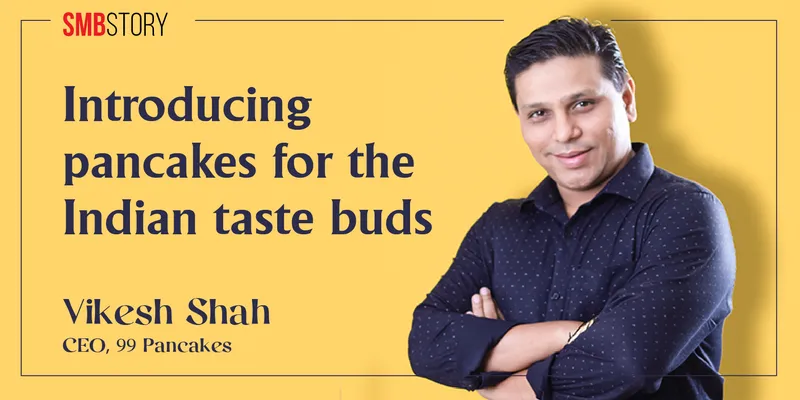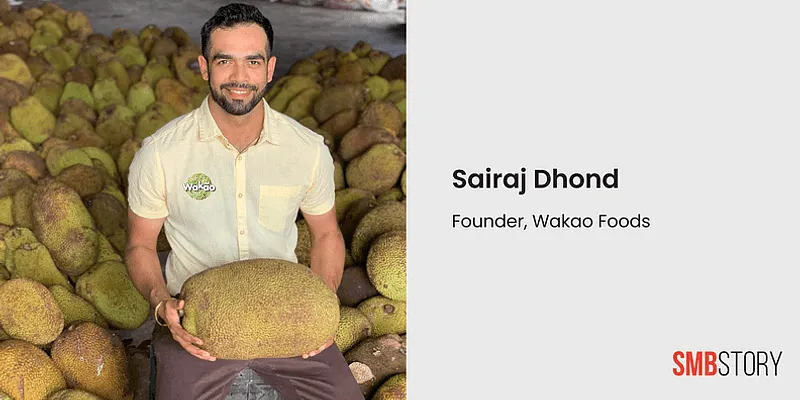5 Made-in-India brands disrupting the FMCG space
This week, SMBStory lists down some of the disruptive business models in the FMCG space which are carving a niche in the Indian market.
The Indian FMCG sector is a booming industry. From greater focus on health using organic ingredients to using data to analyse consumer trends, and automating the process of manufacturing, there are numerous innovations that have taken place in this segment over the years.
This week, SMBStory broke down some of the disruptive business models in the FMCG space which are carving a niche in the Indian market.
Giving desserts a healthy twist

Indians are known to have a sweet tooth. From ras malai to jalebi, cakes to doughnuts, we relish it all. Apart from milk-based ice-creams, one of the desserts that we have grown up devouring at fairs and outside our schools is ice popsicles.
While ice pops are one of the most popular desserts in the Indian subcontinent, with the ice cream market in the country reaching over Rs 14,000 crore in 2020, the industry is largely unorganised and hardly has any formal players, says Ravi Kabra, Founder of ice pops brand .
Skippi (also known as Kabra Global) is an offshoot of Prabhat Udyog, a larger FMCG company started by Ravi’s father, Pravin Kabra in 1980.
Ravi realised the existence of this formal gap when he was living in Australia (between 2018-19) and his sister came to visit him. “We enjoyed ice pops a lot in Sydney. So when my sister came from India to visit, she wanted to pack some and take it back with her,” he narrates, adding, “This became a turning point for us.”
Ravi and his wife, Anuja Kabra, started researching the market. After speaking to friends in different cities, the duo realised that the gap really existed. They launched Skippi in 2021. It is available in six flavours which are extracted from natural fruits and vegetables. For instance, in the Mango Twist ice pop, the colour is extracted from curcumin.
The brand sells through its own website as well as marketplaces such as and , and also through 2,000 retail outlets across the country.
Spicing up the dessert market

A keen observer of trends and cultures, Vikesh had noticed during his travels to Europe that pancakes, with its various toppings and flavours, were a staple, and consumed mainly as a breakfast meal. With the increasing popularity of pastries and English desserts in India, he felt like there was a huge market lying untapped for pancakes.
Vikesh launched the first outlet of his pancake specialty store in Mumbai’s Kala Ghoda in 2017. It started selling pancakes for Rs 99, thus the name - .
Vikesh says he knew that unlike in the west, India will not take to pancakes for breakfast, atleast as a staple.
“People are more than happy with idlis and vada paos.” So, he decided to “Indianise” the product. And according to him, achieving this was very simple as all he had to do was add Nutella or chocolate to the pancakes.
The company peaked in 2018 and 2019 when it launched 65 stores pan India including Gujarat, Telangana, Madhya Pradesh, Karnataka and Tamil Nadu. Today, it is also present on delivery aggregators such as and .
Looking beyond parathas for breakfast

Shyam Bagri was just 19 years old when he joined his family business of flour-milling in the late 1970s. Wanting to explore more, he established a flour-milling unit at 21 and ran the B2B (business-to-business) unit for the next few years.
However, Shyam wanted much more than running a flour mill business.
“He had the desire to establish his own brand which is healthy and nutritious and it wasn't driven by any commercial objective,” tells his son Aditya Bagri in an interaction with SMBStory.
This is how cereal brand began its journey in 1994.
With the economy opening up in the 90s, India saw a shift in consumer behaviour. Parathas and vada pavs aside, Bagrry’s introduced muesli and granola, nutrition bars, peanut butter, quinoa seeds, flax seeds, apple cider vinegar, to the audience who was becoming increasingly health-conscious.
In particular, the company came into the limelight when former US President Bill Clinton was served Bagrry’s muesli during his visit to India in 2000. Bagrry’s is present across 70,000 outlets in India and exports to eight countries including the US and Canada.
Automating the cooking process

One of the newest trends to have emerged in the Indian manufacturing industry is factory automation. Industries are increasingly looking at cost-effective methods in production, and this has led to more automation in factories.
One of the companies that has managed to disrupt the FMCG space with its automation technology is Bengaluru-based . Its machines - DosaMatic, Eco Fryer, RiCo and Wokie, are all manufactured in-house, and used to make dosas, rice, noodles, and curries without any human intervention.
Founded in 2012 by SRM University alumni, Eshwar K. Vikas and Sudeep Sabat, Mukunda Foods, Eshwar says, is on a mission to automate the making of Indian foods. And now, with contactless products becoming more common due to the COVID-19 outbreak, there has never been a busier time for Mukunda Foods.
At a time when the need for contactless transactions was at an all-time high due to the pandemic, Eshwar says Mukunda Foods was able to come to the aid of several hospitals in Bangalore. Hospitals that were facing staff shortage in their kitchens benefitted hugely from the deployment of these machines.
The company has also seen a huge uptake in the orders for these machines since the pandemic outbreak. Eshwar claims that in the pre-pandemic times, they were able to sell more than 150 machines quarterly, and this number has now gone up to more than 500.
Focusing on plant-based diets

The focus on health has never been more underlined than in the last year or so, with a large section of the population reassessing what they eat and its impact on the body. A growing trend seen in India is the popularity of plant-based diets, while veganism, as a concept, has been on the rise from pre-pandemic days.
Such is the popularity of plant-based diets now that jackfruit, a long underrated mighty summer fruit, has recently turned into a meat alternative in the country. Apart from being packed full of fiber, jackfruit is low in calories, fat and carbs, making it an easy and sustainable superfood.
Goa-based , started by lawyer turned entrepreneur Sairaj Dhond, is one such brand that is tapping into this emerging superfood, and making it easier for Indians to make the switch to plant-based diets.
Currently, the brand offers jackfruit-based ready-to-eat products that are packaged and marketed imaginatively - Barbeque Jack, Burger Patty, Butter Jack and Teriyaki Jack.
Wakao Foods is now present on platforms such as Wellversed, Flipkart and others. The company sells pan-India through its website, and counts Hilton, Oberoi, The Grand Hyatt, Zomato Hyperpure and Ola Foods among its clients in the B2B space.
Edited by Anju Narayanan











